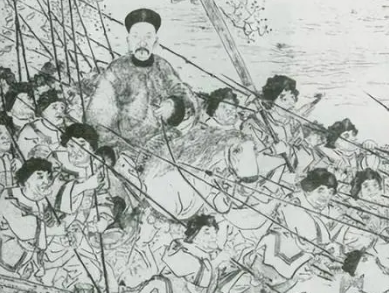Throughout Chinese history, numerous emperors have been labeled as "war gods" due to their military prowess or victorious battles. However, for Zhu Qizhen of the Ming Dynasty, this title carried a deeply ironic undertone. Zhu Qizhen's series of faulty decisions nearly led to the demise of the nation, making him a controversial figure in history. This article delves into why Zhu Qizhen earned the moniker "Great Ming's War God" and the historical truth behind this sarcastic epithet.

Firstly, Zhu Qizhen did demonstrate some military prowess during his reign. He personally led troops in resisting foreign invasions and achieved several victories. These successes gained him a certain level of popularity among the people and earned him the title of "War God".
However, Zhu Qizhen's reign was also marked by a series of disastrous decisions. His reliance on eunuchs for power corrupted the court and devastated the livelihood of the people. Furthermore, his strategies in foreign wars were flawed. In the conflict against the Warla tribe, Zhu Qizhen's trust in the enemy led to a devastating defeat for the Ming army, and he himself was captured. This event severely weakened the Ming Dynasty's national strength and nearly led to the collapse of the country.
Behind the moniker of "Great Ming's War God," the irony lies in the mockery of Zhu Qizhen's military prowess. Although he achieved some military victories during his reign, these successes cannot overshadow the disasters caused by his faulty decisions. Therefore, this title is not a commendation for Zhu Qizhen but a sarcasm aimed at his failed rule.
Zhu Qizhen's decisions during his reign had profound implications for the Ming Dynasty. His failed governance led to a significant decline in the country's strength, laying the groundwork for subsequent peasant uprisings and external threats. Additionally, his reliance on eunuchs for power paved the way for the emergence of secret service organizations like the East and West Chambers. These impacts have left Zhu Qizhen with a negative reputation in history.
In conclusion, the mockery behind Zhu Qizhen's title of "Great Ming's War God" lies in the disasters brought by his faulty decisions during his reign. This sarcastic epithet reveals the failures of Zhu Qizhen as an emperor. However, evaluating an emperor's merits and demerits in history should not be limited to one aspect. We should comprehensively examine Zhu Qizhen's achievements and failures during his reign, drawing lessons from history to inform our development today.
Disclaimer: The above content is sourced from the internet and the copyright belongs to the original author. If there is any infringement of your original copyright, please inform us and we will delete the relevant content as soon as possible.






























